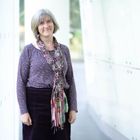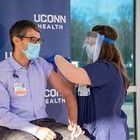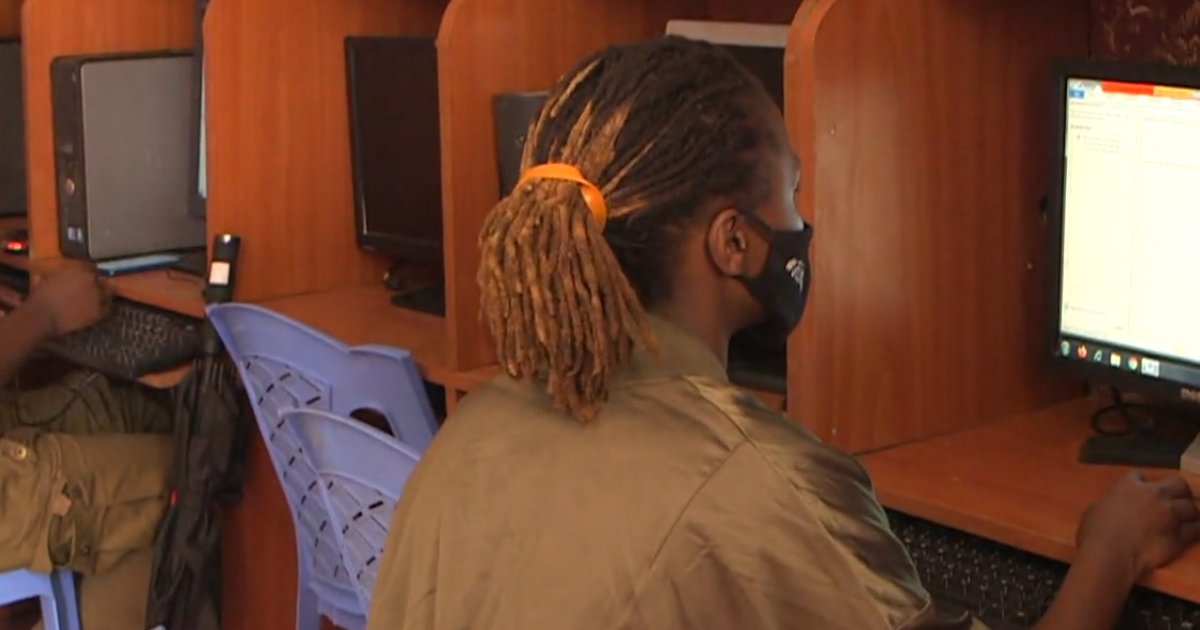Experts Matter. Find Yours.
Connect for media, speaking, professional opportunities & more.

International security scholar's thoughts on Biden, military decision-making in Afghanistan
Baylor University's Peter Campbell, Ph.D., associate professor of political science, penned a column for City Journal, in which he discusses who deserves scrutiny following the U.S. withdrawal from Afghanistan. Getty Images In a column published Sept. 23 in City Journal, international security scholar Peter Campbell, Ph.D., associate professor of political science at Baylor University, explained the civilian-military dynamic in the United States and argued that President Biden -- not the U.S. military -- should shoulder the blame for what Campbell described as the president's "ill-conceived plan for withdrawing U.S. troops." During the withdrawal in August, many dozens of people were killed in a terrorist bombing, including 13 U.S. soldiers. Also, more than 100,000 people were airlifted from the country. Right now, we can only speculate about precisely what advice Biden’s military advisors shared with him, but it’s unlikely that American military leaders would have sanctioned on their own the accelerated withdrawal that the president demanded. My years of studying military history and military doctrine have taught me that fighting withdrawals are among the most difficult military operations to undertake, even for a highly disciplined and well-trained military force. Moreover, the Afghanistan withdrawal was to take place during the active fighting season, when favorable weather tends to increase the tempo of Taliban operations. The Afghan government requested that Biden delay the withdrawal until the winter, when conditions reduce the mobility of forces in the region. Wedded to his timeline, the president refused. In the column, Campbell wrote that America and the international community should not be left to speculate as to what advice the president received prior to his decision. He called for U.S. Congressional committees to investigate. "Americans deserve to know exactly what the military and the intelligence community told the president," he wrote. ABOUT PETER CAMPBELL, Ph.D. Peter Campbell, Ph.D., associate professor of political science at Baylor University, is a scholar on international security, civil-military relations, insurgency and counterinsurgency, the just war tradition, and cyber warfare. He is the author of Military Realism: The Logic and Limits of Force and Innovation in the U.S. Army, published by University of Missouri Press.

Social media ‘likes’ found to positively influence healthy food choices – new research
Social media users who view images of healthy foods that have been heavily endorsed with ‘likes’ are more likely to make healthier food choices, a new study has found. The research, by psychologists from Aston University’s College of Health and Life Sciences, found that study participants who viewed highly liked mock Instagram posts of fruit and vegetables ate a significantly higher proportion of grapes than cookies, with consumption of grapes increasing by 14 per cent more calories, compared to those who viewed highly liked high calorie foods. The study, which is published in the scientific journal Appetite, investigated the acute effect of socially endorsed social media posts on participants’ eating behaviour. The 169 participants, who had an average age of 21 years old (but total ages across the group ranged from 18 to 48), were asked to look at mock Instagram posts of different types of food, that either had a few or a lot of ‘likes’, and later given access to grapes and cookies to consume. As well as viewing images of fruit and vegetables, participants also looked at less nutritious foods such as cakes and biscuits, and non-food images such as stylish interior designs. However, the researchers found that the participants went on to consume a larger proportion of grapes after viewing highly liked images of fruit and vegetables, compared to the other images. Aston University psychology PhD student Lily Hawkins, who led the study alongside supervisor Dr Jason Thomas, said: “The findings of the study suggest that not only exposure to healthy food images on social media, but those that are also heavily endorsed with ‘likes’, may nudge people to choose to eat more healthy foods, in place of less nutritious foods.” “What we see others approve of eating and post about eating on social media can affect our actual eating behaviour and could result in a greater consumption of healthier meals and snacks.” “One reason for this may be because thinking that others ‘like’ and eat fruit and vegetables nudges participants to alter their behaviour in order to fit in with what they perceive to be the norm.” The most recent figures from the NHS’s Health Survey for England showed that in 2018 only 28 per cent of adults were eating the recommended five portions of fruit and vegetables per day. In Wales, this was 24 per cent, in Scotland 22 per cent and in Northern Ireland around 20 per cent. Children and young people across the UK had even lower levels of fruit and vegetable consumption. The study findings suggest that social media could be used in future as a way to encourage healthier eating - by encouraging users to follow more social media accounts which have highly liked nutritionally balanced posts, also containing healthier foods. The researchers said the next stage of their work will trial an intervention using real Instagram accounts, to test whether asking people to actively follow more social media accounts posting images of highly liked nutritionally rich foods, can encourage people to consume more fruit and vegetables over a sustained period of time. Professor Claire Farrow, Director of Aston University’s Applied Health Research Group, whose work has contributed to the national Child Feeding Guide resource, added: “We know that social interactions can strongly shape what, when and how much we eat. These findings highlight the important role that social media has in shaping those influences online.” “The findings suggest that people do not simply passively view information about what other people are eating online, but that this digital information can shape our food preferences and choices, particularly when we think lots of other people like certain foods. It is promising that exposure to healthy foods, and likes of those foods, was related to greater intake of healthy foods.” “Further research is needed to explore whether and how these findings can be translated into digital interventions to help support individuals who want to make healthier food choices, and to understand how social media platforms can be used as a tool to support healthy eating behaviour.”

Aston University to host event for new incoming students aimed at ‘building better democracy’
University experts have developed a unique online system which combines evidence and values to create effective decision-making The Deliberative Practice Network (DPN) has been used for creative teaching over the past three years and is now being looked at as a tool for online democracy The event will create a unique learning experience for new students and others using in-depth deliberation to consider a topical social issue. Aston University will host an event at the end of Welcome Week 2021 aimed at creating a unique learning experience for new students and others using in-depth deliberation to consider a topical social issue. Experts from the University have developed a unique online system called the Deliberative Practice Network (DPN) which combines evidence and values to create effective decision-making. Their system has been used for creative teaching over the past three years and is now being looked at as a tool for online democracy. As part of this pilot project, a ‘deliberative event’ will be held in the Wright Lecture Theatre on Saturday 25 September, at the end of Induction Week, open to everyone interested in 'building better democracy'. At the start of the day the newsworthy issue of ‘mandatory vaccination against Covid’ will be presented; complemented by talks: ‘Vaccination 101’, ‘Available Data’ and ‘Vaccine passport and live music events’. Voting and commenting on a controversial proposal will be encouraged via the DPN, and results will be instantly available. Speakers will then put the case for and against the proposal and delegates will be encouraged to debate in groups, and online. David Seedhouse, professor of Deliberative Practice at Aston Pharmacy School, said: “The event is open to all who wish to explore inclusive democracy, informed debate, and online decision-making. It will interest delegates from a wide range of backgrounds. “It can be difficult for citizens to have a say about decisions which affect us so we want to provide an example of a more inclusive form of democracy, based on detailed consideration over time, rather than a one-off show of hands.” Dr Patrycja Rozbicka, senior lecturer in politics and international relations at the School of Sciences and Humanities at Aston University, said: “This event will be an opportunity for new students to get engaged with what we do at Aston University and to have a bit of fun, before classes kick in. “Over a week there will be more information and discussion, culminating in a second vote on the original proposal." Dr Killian Mullan, lecturer in sociology and policy at Aston University, said: “This event is a fantastic opportunity for students to engage in critical, open, and informed debate on a crucial topic affecting society, helping students develop skills in evaluating competing arguments.” You can sign up to attend the free event HERE.

Timpson CEO joins Aston University as visiting professor
• James Timpson OBE has been the chief executive of Timpson since 2011 • He will work within Aston University’s College of Business and Social Sciences to develop connections in personal financial wellbeing and tax • Professor Timpson will engage with students about values in leadership and will deliver a public lecture on corporate kindness. The CEO of retail chain Timpson has joined Aston University as a visiting professor within the College of Business and Social Sciences. James Timpson will work closely with Aston University’s head of accounting to develop connections between Aston Business School and the tax and financial wellbeing industry over the next three years. In his first 12 months he will engage with both first year and pre-University students about University life, running a business and values in leadership and corporate kindness, delivering a public lecture around the latter reflecting Timpson’s work with ex offenders. He will also have the opportunity to talk to Masters students who have interests in corporate cultural development alongside Aston University’s Work and Organizations and Strategy departments and its MBA programme. Professor Timpson will also work with colleagues at Aston Business School to develop connections on his interests related to the University’s research agenda, such as TaxWatch, and connect Timpson with the student placements team to explore possible opportunities for student third year placements on MSc and MBA project work. Professor Timpson said: “I am excited to join Aston University as a visiting professor and to pass on some of the knowledge and connections I have built over the last 27 years in business. “I am looking forward to discussing the mechanisms of business with the business leaders of tomorrow at Aston University and about culture and corporate kindness at the University and its activity and plans in this area. “The Timpson Foundation specialises in the recruitment of marginalised groups within society as well as supporting numerous other socially minded projects. Approximately 10 per cent of our workforce is made up of people who have criminal convictions. We believe in giving people a second chance.” Professor Andy Lymer, head of accounting at Aston Business School, said: “I am really looking forward to working with James. “This well-deserved award recognises the distinguished contribution that he has made and continues to make to the business community. We are privileged to have a business leader of James' stature join our faculty. “As a university that values highly practical experience, his wide and varied track record at boardroom level will provide invaluable stimulus and advice for our students and staff alike.”

Aston University Professor Patricia Thornley elected Fellow of The Royal Academy of Engineering
• Professor Patricia Thornley joins a total of 69 leading engineers from around the world to the Fellows of the Royal Academy of Engineering • Each individual recognised for their outstanding and continuing contributions to their profession • Patricia Thornley is the Director of the Energy and Bioproducts Research Institute (EBRI) at Aston University Professor Patricia Thornley from Aston University has joined the Royal Academy of Engineering as a Fellow. The Director of the Energy and Bioproducts Research Institute, which is based at the University, joins a total of 69 leading figures in the field of engineering and technology to the Fellowship of the Royal Academy of Engineering this week. The group consists of 60 Fellows, four International Fellows and five Honorary Fellows, with each individual having made exceptional contributions to their sectors in their own way, as innovation leaders, inspiring role models, or through remarkable achievements in business or academia. This year’s new Fellows are the first to reflect the Academy’s Fellowship Fit for the Future initiative announced in July 2020, to drive more nominations of outstanding engineers from underrepresented groups ahead of its 50th anniversary in 2026. This initiative will see the Academy strive for increased representation from women, disabled and LGBTQ+ engineers, those from minority ethnic backgrounds, non-traditional education pathways and emerging industries, and those who have achieved excellence at an earlier career stage than normal. These new Fellows will be admitted to the Academy, which comprises nearly 1,700 distinguished engineers, at its AGM on 22 September. In joining the Fellowship, they will add their capabilities to the Academy’s mission to create a sustainable society and an inclusive economy for all. Sir Jim McDonald FREng FRSE, President of the Royal Academy of Engineering, said: “Our Fellows represent the best of the best in the engineering world, and we welcome these 69 excellent and talented professionals to our community of businesspeople, entrepreneurs, innovators and academics. “This year’s new Fellows are the most diverse group elected in the history of our institution. The engineering profession has long suffered from a diversity shortfall and the Academy is committed to changing that, including by ensuring that our own Fellowship community is as inclusive as it can be. It is well established that diverse organisations tend to be more agile and more innovative, and as the UK’s National Academy for engineering and technology, we have a responsibility to reflect the society we serve in addressing the shared challenges of our future.” Professor Thornley added: “It is such an honour to be admitted to the Academy and be able to represent Aston University, EBRI and females within engineering, and I look forward to working with the Royal Academy of Engineering in the future.”

Indebted Chinese Real Estate Developer Could Become Systemic Risk
Recent speculation surrounding the property developer China Evergrande Group caused the S&P 500 to have its worst day since May. But what we should look out for is systemic risk, according to John Sedunov, PhD, associate professor of finance at Villanova University. Evergrande currently has the biggest debt out of all publicly traded real-estate management or development companies. “The big issue seems to be Evergrande’s ability to repay its debt. The bigger issue is a potential for systemic crises or contagion to unfold,” said Dr. Sedunov. Another possibility is that Beijing could allow Evergrande to default. “Evergrande is a large Chinese developer, and the Chinese government may allow it to fail. It owes a lot of money to financial institutions and other market participants,” says Dr. Sedunov. With these risks, assets were moved from stocks, oil and Bitcoin to much safer options. “What’s potentially at stake is a contagion event where institutions with large exposure to Evergrande experience distress or fail as a result of lost cash flows they are expecting from Evergrande. This scenario is exacerbated if the company is allowed to fail,” said Dr. Sedunov. Does this present any other future concerns? Per Dr. Sedunov, Evergrande’s collapse could also impact the housing market. “More at issue is also that the real estate sector in China looks to be quite overheated (and it may be here as well), and this could be a signal of a collapse in real estate values, which again can bleed back into the financial system,” he said.

Experts in the Media – UConn’s Dr. David Banach is the go-to voice on COVID boosters
As COVID continues to wreak havoc across the globe, health systems in America are overwhelmed. And as the debate about a third shot continues, the FDA is prepared to allow Pfizer vaccine boosters as early as this week to those over 65 and to people at a higher health risk if exposed to the virus. UConn epidemiologist Dr. David Banach offered his expert perspective and insight on the need and effectiveness for those looking to learn more about booster shots and COVID vaccines: Booster shots of Pfizer’s COVID-19 vaccine may be administered as early as Friday, but who will get one is still up for discussion. “What the FDA review showed was in the general population, at this date and time, there wasn’t sufficient data to support booster doses,” said Dr. David Banach, hospital epidemiologist at UConn Health. Last week, the FDA’s advisory committee voted overwhelmingly not to recommend a third shot for people 16 and up. However, they did vote to authorize a booster dose at least six months after full vaccination for people who are 65 and older as well as individuals who are at high risk for severe COVID. “In older populations, there seems to be some potential benefit to giving a third dose within the Pfizer group,” said Dr. Banach. Dr. Banach said more information is expected in the days to come as this matter heads to the CDC’s independent advisory panel this week. “It’s going to provide more granular recommendations on how to proceed with that 65 and older group and potentially other groups as well,” said Dr. Banach. He added one of the groups up for discussion is healthcare workers. There continues to be an enormous amount of coverage and questions about vaccines and COVID-19, and if you are a journalist looking to know more and include an expert in your story, then let us help. Dr. David Banach is one of the lead experts on COVID-19 in America. He is available to speak with media regarding vaccination and what the future holds with COVID-19. To book an interview, simply click on his icon today.

Could There Be a Ninth Planet?
A new study re-examined work from 2016 and proposed additional evidence of a ninth planet. While this investigation has been met with much skepticism, Scott Engle, PhD, assistant professor of astrophysics and planetary sciences at Villanova University, contends Planet Nine's existence is a possibility. "Proposing that the Solar System contains a yet undiscovered planet is always going to be a remarkable claim, so it makes complete sense that there's been a lot of excitement from the public and also a divided response from the field," says Dr. Engle. "This recent study certainly makes a more convincing claim than in 2016. The authors seem to understand the weight behind such a claim, and they appear to have aimed this study to address some of the claim's criticisms. Naturally, though, its existence is just an interesting possibility." If Planet Nine is confirmed, what would this change in the field of astronomy? Alongside the excitement of a new planet's discovery, a swell of studies would emerge to continue to investigate the planet. "First, we'll want to pin down the planet's orbit, which will continually improve as we track the planet over time. Once we get a good idea of its orbit, there's also the possibility of going back through the image archives—maybe we'll get really lucky, and Planet Nine photobombed some image that Hubble was taking of an unrelated object." Planet Nine would be unique, particularly because of its position so far from the Sun. "Theoreticians will have a field day determining if the planet formed that far from the Sun or if it formed closer to the Sun and 'migrated out' to its current distance... and then [picking apart the] implications those results have for the current structure of the Solar System and our theories on how it formed. Astronomers will also want to know the composition of Planet Nine—whether it 'belongs' with the Solar System or is a captured rogue planet." Can we expect any extraterrestrial discoveries? Before we start to imagine life on Planet Nine, Dr. Engle noted it is probably not habitable: "Likely not in any human sense of the word. There is a wide range of properties allowed by the latest results, but as the authors state, a gas giant seems probable. Also, the planet orbits at such a distance that it receives 1/57,000th the amount of sunlight that we receive here on Earth, or less." But a discovery of a ninth planet could spark novel findings and "eureka" moments. "The detection would also serve as a great reminder that even 'right in our own backyard' there are still incredible discoveries to be made," said Dr. Engle.

Children Face Type 2 Diabetes Health Concerns After a Year at Home
Some children are facing health concerns after a year of attending school online. During the pandemic, research found cases of type 2 diabetes among children more than doubled. Lisa Diewald, MS, RD, LDN, Program Manager for the MacDonald Center for Obesity and Education weighed in on causes and potential prevention methods going forward. “We know that physical activity level, eating habits, weight status and other lifestyle factors play a significant role in the development of type 2 diabetes in adults and in children,” said Diewald. “Because of disruptions for many children in all four factors during the pandemic, (on top of pre-existing challenges), we are starting to see trickle-down health effects involving lifestyle-related chronic diseases, such as type 2 diabetes and children are not immune to these health effects.” Type 2 diabetes is related to obesity, exercise habits and diet. Children who struggle with weight may also have many social, genetic and environmental factors impacted by the accelerated risk seen through the pandemic. For example, the absence of healthy school meals while learning from home negatively impacted some children, as processed foods became replacements. Eating habits are also largely impacted by one’s mental state. “Like adults, children learn to cope with stress and anxiety in different ways. For some, this means reaching for comfort foods, which are often high in refined carbohydrates, saturated fat and sugar-all risk factors for T2 diabetes if consumed in excess,” said Diewald. “These foods can contribute to unhealthy weight gain, especially when physical activity is limited as well. The bad news is that it does not take a lot of weight gain to put a child who is already at risk at greater risk for diabetes.” But families should be aware of the good news that small changes can make a big difference and that prevention is possible. Diewald recommends a few small changes to alter a sedentary routine for parents and schools: • Build 1 minute brain breaks during the day for activity such as stretching or running up and down the stairs • Keep healthy snacks available and sugar sweetened snacks and drinks less visible • Create safe and walkable opportunities for children to add physical activity • Look for outdoor community sponsored activities that encourage physical activity that can provide safe and accessible physical activity opportunities Additional measures for parents to prevent the unhealthy coping with foods including working with children to make a list of fun alternative activities (unrelated to food) to do when boredom kicks in and posting in an accessible place in the home. Parents can act as role models and let children see that parents are working on more effective ways to cope as well. Though the risk of type 2 diabetes has been increasing during the past year, many factors can continually increase a person’s risk. These tips can provide the valuable tools for prevention in the future. “Teaching children healthier ways to cope with boredom and depression than eating are skills that can help for a lifetime, well beyond the pandemic,” said Diewald. To speak with Diewald, email mediaexperts@villanova.edu.

Offshore A’s – UMW’s David Rettinger is the go-to expert for the Varsity Blues trial
The Varsity Blues case captured headlines over two years ago, when news broke that wealthy parents paid upwards of $25 million in bribes to help their children cheat on test scores and secure college admission. As the trial gets underway this week, Professor of Psychological Science David Rettinger, who oversees Academic Integrity Programs at the University of Mary Washington, can provide unique insight into the scandal and the rise of contract cheating at colleges and universities across the country. He was recently interviewed by CBS News about the billion dollar cheating industry that has emerged in Kenya, where Americans are paying African students to do homework, write essays and in some cases, even complete degrees for them. "I think the state of cheating at colleges and universities is serious and getting more serious," David Rettinger ... told CBS News. He said that cheating is problematic because it means people can graduate from degree programs without actually being qualified in their fields. "We trust our doctors have been to medical school," Rettinger said. "Cheating leads us to overall social corruption because it leads us to having a cadre of professionals who can't actually do the work that they claim they can do." You can see the full interview and story here: Dr. David Rettinger is available to speak with media regarding this issue of cheating and academic integrity. Simply click on his icon now to arrange an interview today.





